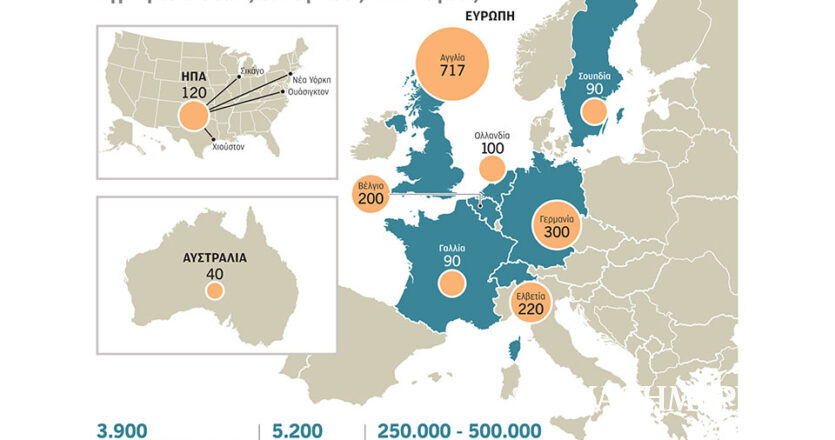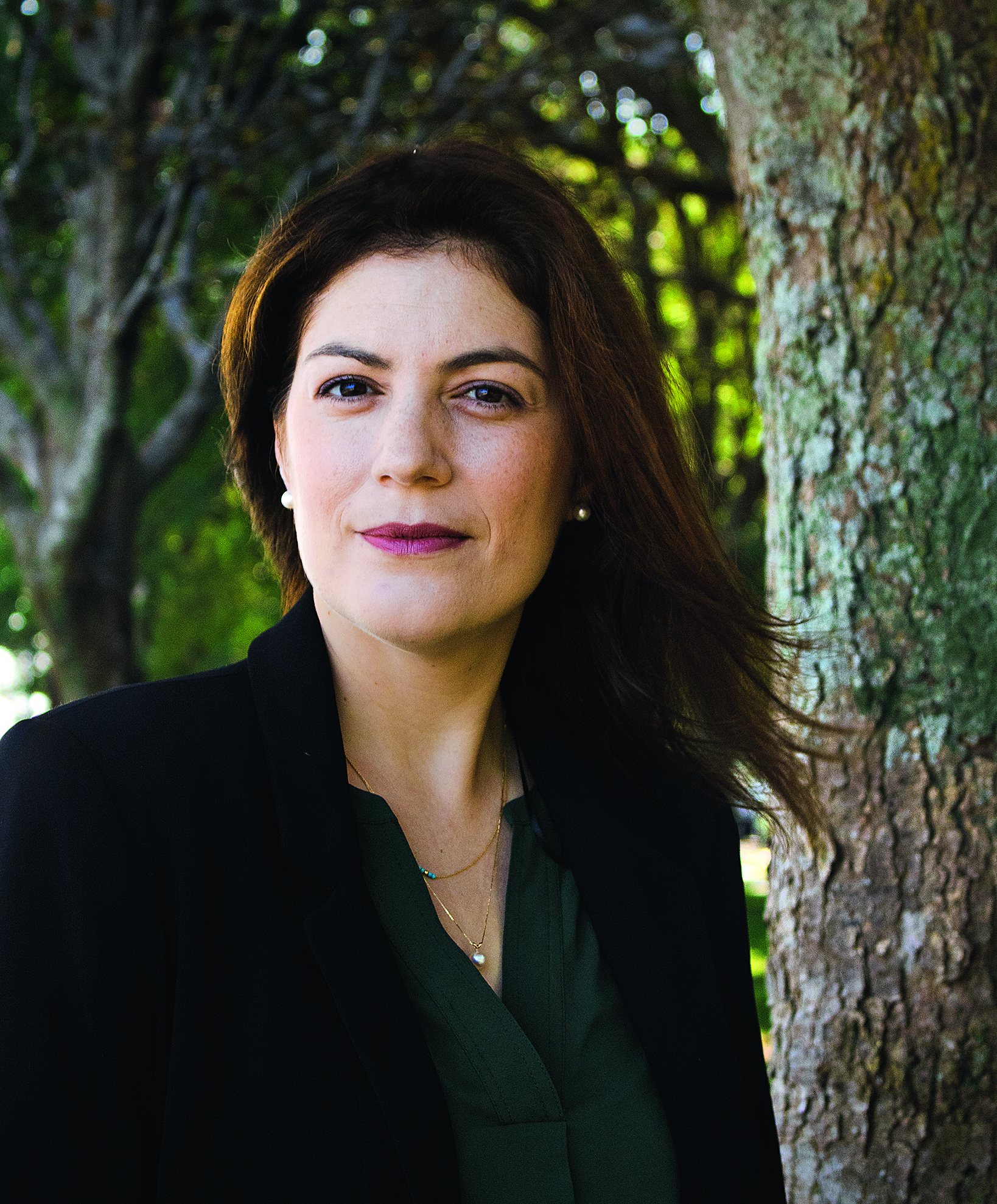
Gone is the time when “party” charters carried students from Europe and America to bring them to Greece for three days back home after voting, and with a certain vote in national elections. However, the request of today’s Greeks to vote in national elections where they are necessary. After the mass exodus of tens of thousands of young scientists abroad in search of work, due to the economic crisis, in the last decade, there may have been more Greeks living and working in other countries than ever before. The exact number of those who left recently is not officially known—estimates range from 250,000 to as many as 500,000.
Voting from place of residence has been a requirement of expats for decades. The relevant legislation (L. 4648/2019 passed in December 2019) which finally gives this possibility, limits the scope of beneficiaries to those who emigrated relatively recently: in order to be able to vote from afar, you must have lived in Greece for the past 35 years For at least two years and in the last two years you have filed a tax return in Greece. In this national election, this is the first time that Greeks abroad can vote from their place of residence, but so far very few have benefited from the right given to them by law. According to Home Office figures, only 3,900 have been approved through the relevant platform, while applications submitted do not exceed 5,200. Of the thousands of Greeks living in Great Britain, only 717 are registered to vote from their place of residence, and although there are few , they represent the largest group of non-territorial voters. About 300 Greeks located in several German cities (Berlin, Hamburg, Dusseldorf, Munich, Dresden, Frankfurt, Nuremberg and Dortmund) are expected to vote from their place of residence, while the number registered in Switzerland reaches 220 people. It seems that the EU services entered the platform to vote from afar, since the applications from Belgium barely reach 200. The number of registered Greek immigrants from the other side of the EU is also very small, 30-40 people. Earth, Australia. To show the prevalence of the Greek diaspora especially in the last decade, applications were submitted from Malta, Istanbul, Mexico, Thailand, Chile, Sudan, Budapest, Shanghai, Hong Kong, Kuwait and Tel Aviv.
It should be noted that the platform will be closed twelve days before the election is called, so some may be out of date if they delay applying any longer.
“K” sought out, identified, and spoke with four Greek women in Boston, Los Angeles, and Amsterdam, and despite the odds (including difficulty using the platform and some specific supporting documents) they were determined to make use of the right they were given to vote for the first time from afar. They all agree on two things: they’ll never miss a thing or something else, “In the back of your mind there’s always the thought of turning back.”
Christos Ismirloglou
comparison with the Netherlands
Christos Ismirloglou works for a multinational technology company in Amsterdam and left Greece in 2010 to pursue a master’s degree. However, he found a job there and stayed. “I learned about the possibility of voting from our place of residence from the Greek media, which I follow. We have been discussing it with our friends for many years, why we can’t vote from here, ”he explains. Life in the Netherlands made not being able to vote from afar seem outdated. “Here all transactions with the state are done remotely. In so many years I went to the service twice just to announce the name of my children. You can’t help but compare it with the bureaucracy in Greece.” A comparison of how things are and how things might be in a country is another reason Mr Ismirloglou would definitely want to vote. “After all, we might come back sometime. We’ve got family and friends back and we’re trying to build a summer house so we can come as often as we can.” The process could have been easier, “but I think someone my age could figure out how to do it,” he says with a laugh.
Georgia Mavromati
The deterrent factor is…the tax office
Georgia Mavromati is a professor at UMass University in Boston. She left Greece in 2011 for her second PhD in America and stayed, where she “opened many doors on a professional level.” “I am anxiously waiting to vote in the Greek elections for the first time from here. The first thing I do when I wake up in the morning is read the news about what is happening in Greece. I live here, but I can’t vote. If I don’t vote in Greece too, I am not a citizen of any country.” Where and in any country. With our vote we can help, strengthen Greece, participate and support changes,” he says. The thought of returning with her daughter, who is now 4, became even more intense. “In Greece they are our parents and our brothers and our culture is different and we don’t want the child to lose this connection to the family.” In his assessment of the small participation in the operation by Greeks abroad, he said that it was to be expected. “It always happens like this, the state adopts something today and it takes time for the change to be achieved by the citizens. It will be better in the next elections.” He hesitates for a moment and completes. “It’s also the problem with the tax office, which must have completed tax returns in Greece. Many fear, they don’t want to engage with the tax authorities in Greece again. Although there was no problem. I did it.”
Angel Lazarus
The country got off the ground
Angelos Lazaris works as a data analyst for a large tech company in Los Angeles. He left Greece in 2002 to pursue a PhD in Southern California and has remained there. “I knew the platform was approved for registration, but I didn’t know how to do it. In the end, it wasn’t difficult at all.” “The good thing about being here in America is that we have a lot of prerequisites, so I had all the necessary documents online. I just uploaded my degree from the Technical University of Crete. Regarding the issue of small participation and the difficulty of the process, there is a logical explanation.” In America We say that the hardest thing is to get from 0 to 1. Then things get easier. Greece did a tremendous job, but it had to be pulled from scratch, as the systems were combined. All this needs to mature, it’s completely normal. We are a new country in terms of these policies, the country should be given some time to make mistakes.” The answer to why he wanted to vote in Greece seemed clear to him. “I care about the country’s cause, I want us to become better and I want to be involved in this process as much as I can. I don’t sound arrogant, but now I have a better understanding of the policies that will benefit us. It is very important for a person to live in an environment where he feels safe, where he knows that he will have the opportunity to develop and progress. We are being verified.”
Angel Photopoulos
I was so glad everyone voted for her
Angelos Fotopoulos works for an IT company in Boston and left Greece in 2014. However, even before that he had been living in the United States for several years to study. “I definitely wanted to register. When I was a student in 1995 you could find some flights to come and vote, and parties make charters. Now with work it would be impossible for me to come.” He left the country because he wanted to pursue an academic career and that was not possible in Greece at that time. “It was a 1-for-10 recruiting era and it was clear I wasn’t going to stand a chance.” He learned about the right to vote from the country of residence from other Greeks with whom they established the “Desmos” link. “I was very happy that all parties voted for it. I feel it is very important to support the efforts in Greece.” The low profile on the platform makes a huge impression on him. “I know a lot of people have come. When I was a professor, I had many Greek students, but now I know a lot of them came to work, too.” Is he thinking of returning? “Hopefully sometime.”

“Hipster-friendly coffee fanatic. Subtly charming bacon advocate. Friend of animals everywhere.”









More Stories
F-16 crashes in Ukraine – pilot dies due to his own error
Namibia plans to kill more than 700 wild animals to feed starving population
Endurance test for EU-Turkey relations and Ankara with Greece and Cyprus